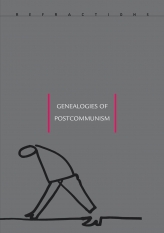 Edited by Adrian Sîrbu, Alexandru Polgár
Edited by Adrian Sîrbu, Alexandru Polgár
Cluj, 2009
Twenty years after its history has started, post-communism continues to present itself, when one wants to discern its characteristics, its precisely delimited epochal profile, under the signature of two intertwined traits. “Post-communism“ marks something passed that is operated to something that came after. And this raises immediately the question of discontinuities or continuities along the gap between from and to: What has passed? What has left? What is that which has left? An indelible reminder or something new?
This book is a new setting of the intellectual framework on “post-communism“and its content is arranged in two broad sections. The first one is preceded by an introduction intended to scan the overall ethical-political horizon of what appeared to us as the genealogical nature of the “post-communism” question in its dual aspect: the questioning of “communism” as effective history and a questioning of the “post-“, of the present history. The second section broadly contains case studies connected to Romania in order that the theoretical approaches extract the characteristic features of Romanian post communism and propel forward a discussion of more general validity.
The origins and preliminary outline of this book was published under the title Genealogies of Romanian post-Communism in 2006 in issue No.24 of the contemporary art and social criticism journal IDEA arts + society.